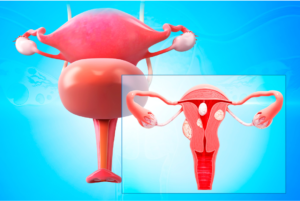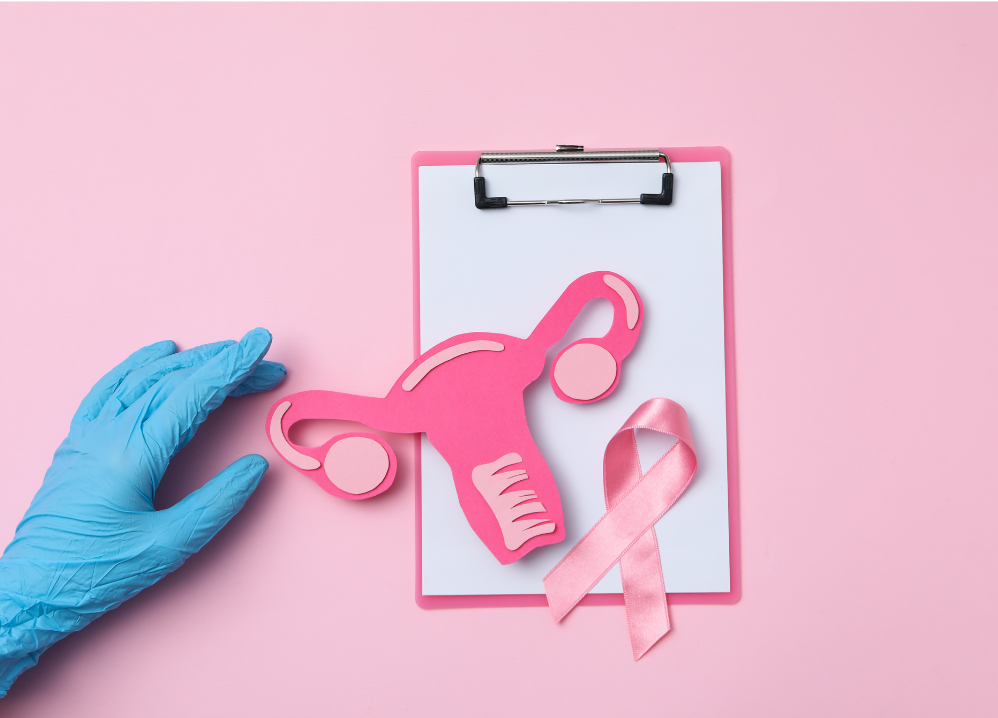The awareness about Cancer is increasing in the society, yet, there are countless women who are unaware of the risks and symptoms associated with gynaecological cancers. It’s a topic that’s often overlooked or misunderstood, yet it’s crucial for every woman to be informed about these types of cancer that affect the female reproductive system. In this blog post, we aim to shed light on Gynaecological cancers, their signs, and the importance of early detection.
What are Gynaecological Cancers?

Gynaecological cancers refer to cancers that affect the female reproductive system, including the cervix, ovaries, uterus, fallopian tubes, vagina, and vulva. The most common types are Cervical, Ovarian, Uterine (Endometrial), Vaginal, and Vulval cancer. Each type of cancer has its own set of risk factors, symptoms, and treatment options.
Understanding the Risk Factors
While the exact cause of most gynaecological cancers is unknown, certain factors can increase a woman’s risk of developing these cancers. Some of the common risk factors include:
1. Human Papillomavirus (HPV) Infection: HPV is a common sexually transmitted infection that can increase the risk of cervical cancer.
2. Age: The risk of developing gynaecological cancers increases with age, with most cases occurring in women over 50.
3. Family History: Women with a family history of gynaecological cancers may have an increased risk of developing these cancers themselves.
4. Smoking: Smoking has been linked to an increased risk of cervical, ovarian, and vulvar cancer.
5. Obesity: Being overweight or obese can increase the risk of developing endometrial cancer.
Recognizing the Symptoms
Early detection of gynaecological cancers is key to successful treatment. However, many women may not experience any symptoms in the early stages of these cancers. That’s why it’s important to be aware of any changes in your body and seek medical attention if you experience any of the following symptoms:
1. Abnormal vaginal bleeding or discharge
2. Pelvic pain or pressure
3. Pain during sexual intercourse
4. Changes in bowel or bladder habits
5. Persistent bloating or feeling of fullness
6. Itching, burning, or pain in the genital area
If you notice any of these symptoms, don’t hesitate to consult with a gynaecologist near you. While these symptoms may not necessarily indicate cancer, it’s always better to be proactive and get them checked out.
The Importance of Screening and Early Detection

Regular screenings can help detect gynaecological cancers in their early stages when treatment is most effective. Pap smears and HPV tests are commonly used to screen for cervical cancer, while transvaginal ultrasound and endometrial biopsy may be used to screen for endometrial cancer. Unfortunately, there are currently no effective screening tests for ovarian, vaginal, and vulvar cancer, which makes it even more important to be vigilant about any symptoms or changes in your body.
In addition to regular screenings, maintaining a healthy lifestyle can also help reduce your risk of developing gynaecological cancers. Eating a balanced diet, exercising regularly, avoiding tobacco products, and practicing safe sex can all contribute to your overall health and well-being.
Final Thoughts
Gynaecological cancers are a serious health concern for women, but with awareness, early detection, and proper medical care, many cases can be successfully treated. Don’t ignore any symptoms or changes in your body, and make sure to schedule regular check-ups with your gynaecologist. By staying informed and proactive about your health, you can take control of your own well-being and reduce your risk of developing gynaecological cancers. Remember, your health is your most valuable asset, so don’t take it for granted.

